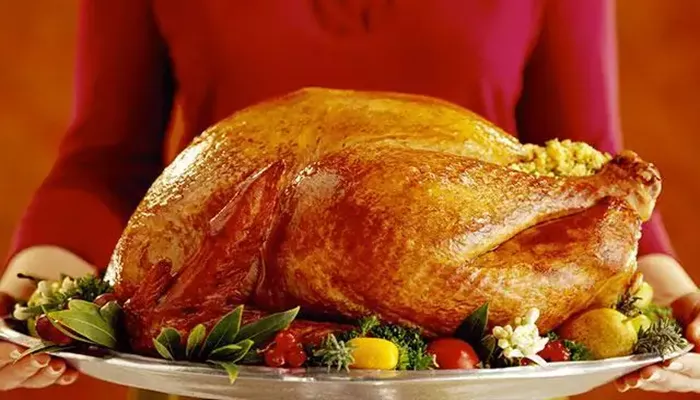Canadian Thanksgiving, known as Action de grâce, is a holiday celebrated on the second Monday of October each year. This occasion serves as a time for Canadians to express gratitude for the harvest and blessings of the past year. The roots of Canadian Thanksgiving are deeply intertwined with both Indigenous traditions and European settler practices, reflecting a rich tapestry of cultural influences that have evolved over centuries.
Historical Background
The history of Thanksgiving in Canada can be traced back to Indigenous peoples who have long held celebrations of gratitude for the changing seasons and successful harvests. These traditions predate European contact and include various ceremonies, feasts, and communal gatherings that honor the land and its bounty. The significance of these practices is profound, as they emphasize a deep connection to nature and a recognition of the interdependence between humans and the environment.
European Influences
The first recorded instance of a Thanksgiving-like celebration by Europeans in Canada occurred in 1578 when English explorer Martin Frobisher held a ceremony in what is now Newfoundland. Frobisher and his crew were attempting to navigate the Northwest Passage when they encountered severe weather conditions. After safely regrouping, they celebrated their survival with a feast that included salted beef and mushy peas, giving thanks for their safe arrival in the New World 13. This event is recognized as one of the earliest forms of Thanksgiving in North America, occurring 43 years before the more widely known American Thanksgiving in Plymouth, Massachusetts.
Following Frobisher’s celebration, French settlers under Samuel de Champlain also held feasts of thanks upon their arrival in Canada in 1604. These gatherings often included sharing food with Indigenous peoples, highlighting early intercultural exchanges that were foundational to Canadian society 24. Over time, as more European settlers arrived, particularly during the 18th century, Thanksgiving began to take on characteristics similar to those seen in American traditions.
Official Recognition
Thanksgiving became an official holiday in Canada on November 6, 1879. However, it was not until January 31, 1957, that Parliament proclaimed it as “a Day of General Thanksgiving to Almighty God for the bountiful harvest with which Canada has been blessed,” designating it to be observed on the second Monday in October 12. This date was chosen partly to avoid conflict with Remembrance Day on November 11, which honors Canadian veterans 45.
Throughout its history, Canadian Thanksgiving has been celebrated on various dates and has evolved from a solemn religious observance into a more secular holiday focused on family gatherings and expressions of gratitude. The themes associated with Thanksgiving have also shifted over time, reflecting societal changes and historical events.
Modern Celebrations
Today, Canadian Thanksgiving is characterized by family gatherings, elaborate meals, and various cultural traditions. While it shares some similarities with American Thanksgiving—such as the consumption of turkey and pumpkin pie—Canadian Thanksgiving tends to be more low-key and less commercialized 36.
Traditional Foods
The traditional Thanksgiving meal often includes:
Turkey: A staple at most Thanksgiving dinners.
Stuffing: Typically made from bread or rice mixed with herbs and spices.
Pumpkin Pie: A popular dessert flavored with cinnamon and nutmeg.
Vegetables: Seasonal vegetables such as squash or green beans.
Jigg’s Dinner: In Newfoundland, this dish consists of boiled meats served with split-pea pudding.
Regional variations exist across Canada; for example, Ontario families may enjoy sweet butter tarts or syrup-filled pastries 34. The diversity of culinary traditions reflects Canada’s multicultural society.
Activities and Traditions
In addition to feasting, Canadians engage in various activities during Thanksgiving weekend:
Outdoor Activities: Many families take advantage of the autumn weather by participating in outdoor activities such as hiking or visiting pumpkin patches.
Sports: Watching football is a common pastime; the Canadian Football League hosts special games known as the Thanksgiving Day Classic.
Parades: Some cities hold parades featuring floats and entertainment that celebrate the holiday.
While many Canadians celebrate on Monday itself, it is common for families to gather on Sunday or even Saturday for their festivities 34.
Reflections on Gratitude
Canadian Thanksgiving serves not only as a time for feasting but also as an opportunity for reflection. Families often take turns sharing what they are thankful for during their meals. This practice encourages mindfulness about personal blessings and fosters a sense of community among family members.
Acknowledging Indigenous Perspectives
It is essential to recognize that for many Indigenous peoples in Canada, Thanksgiving may evoke complex feelings due to historical injustices and ongoing challenges faced by Indigenous communities. Some view this holiday as a reminder of colonialism’s impact rather than purely a celebration 56. Increasingly, there are calls within communities to acknowledge these perspectives during Thanksgiving celebrations.
In recent years, some Canadians have begun incorporating discussions about Indigenous history into their celebrations. This includes recognizing traditional land acknowledgments before meals or engaging in conversations about reconciliation efforts within Canada 5. Such practices aim to foster understanding and respect among diverse cultural narratives.
Conclusion
Canadian Thanksgiving is a unique celebration that reflects the country’s rich history and cultural diversity. Rooted in both Indigenous traditions and European settler practices, this holiday has evolved into a time for families to come together in gratitude for life’s blessings. As Canadians gather around their tables each October, they partake not only in feasting but also in reflecting on their shared histories and aspirations for a more inclusive future.
In embracing both tradition and modernity, Canadian Thanksgiving stands as a testament to resilience—a celebration that honors the past while looking forward to building stronger communities based on understanding and respect. As families across Canada come together each year, they contribute to an ongoing narrative that weaves together threads from various cultures into a vibrant tapestry that defines what it means to be Canadian today.
Related topics:

